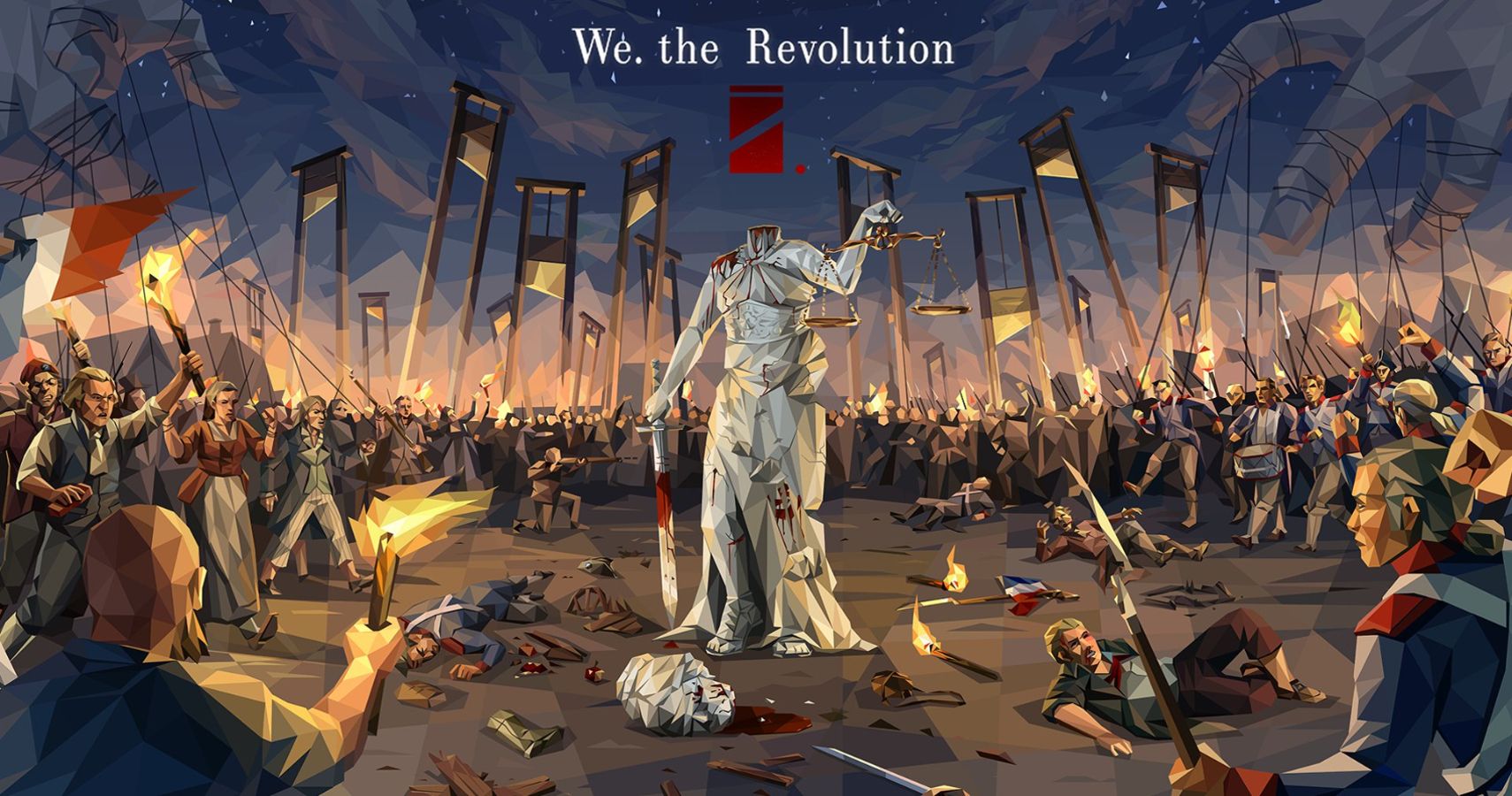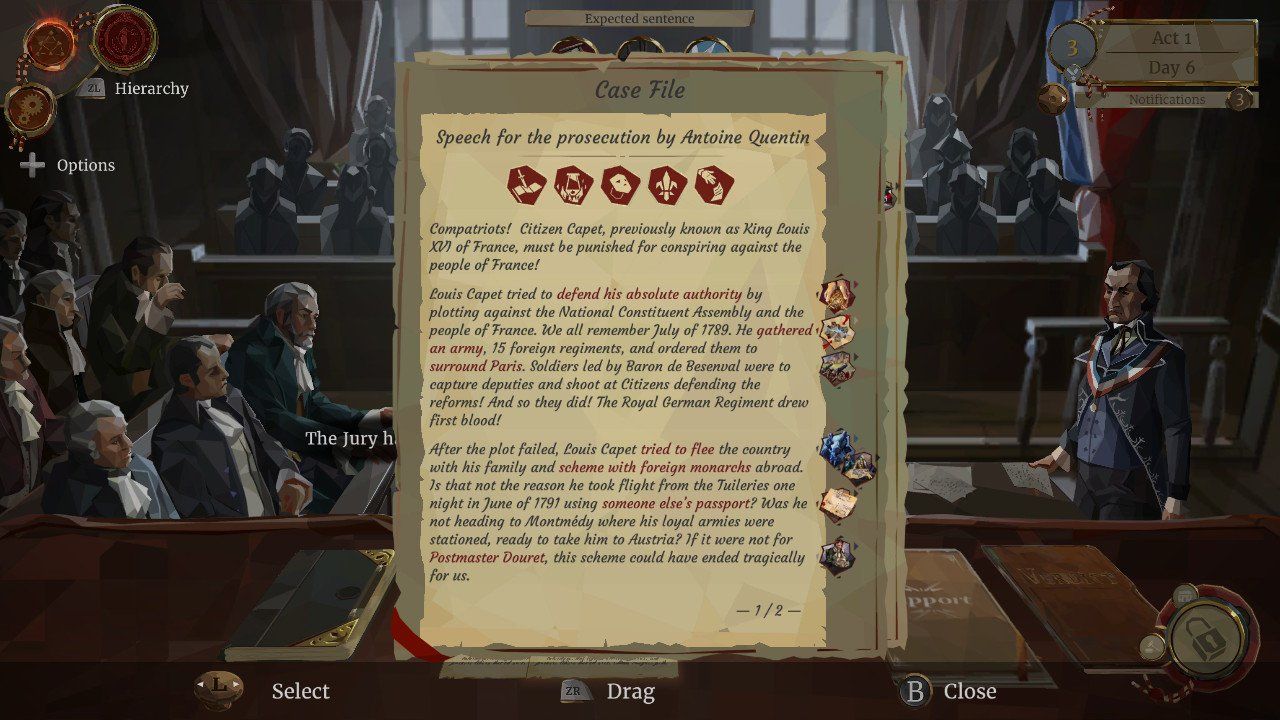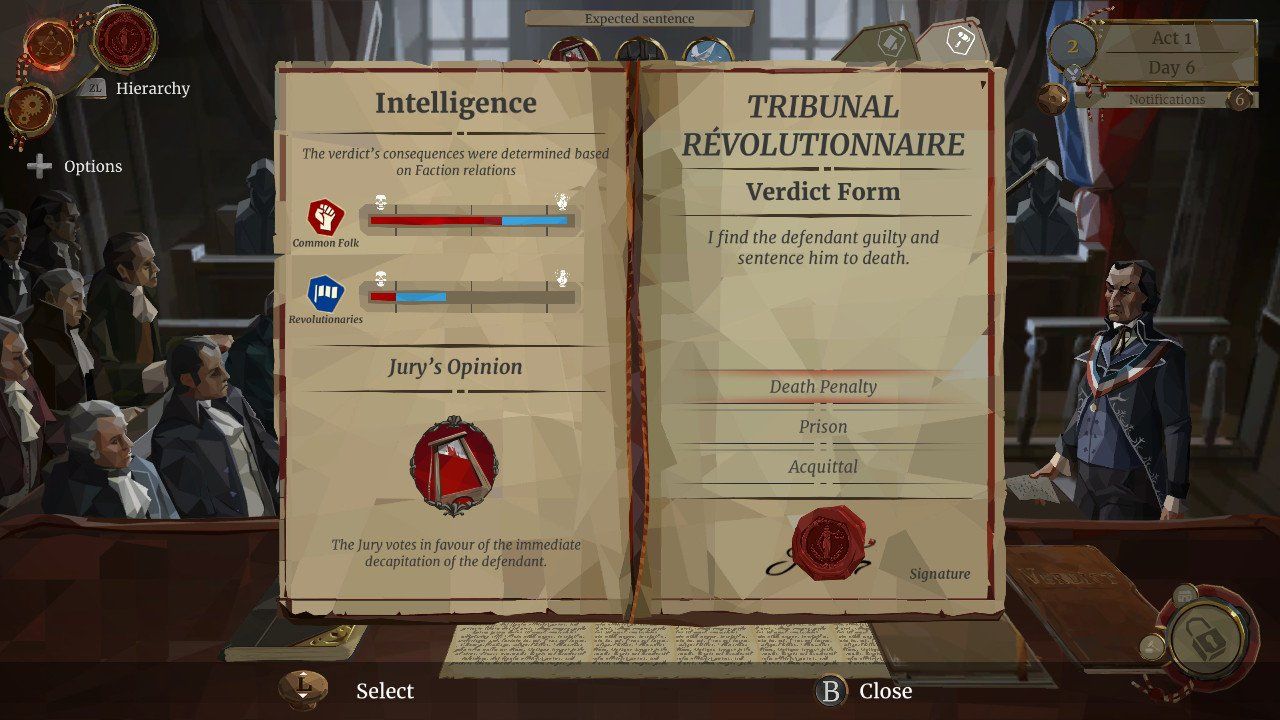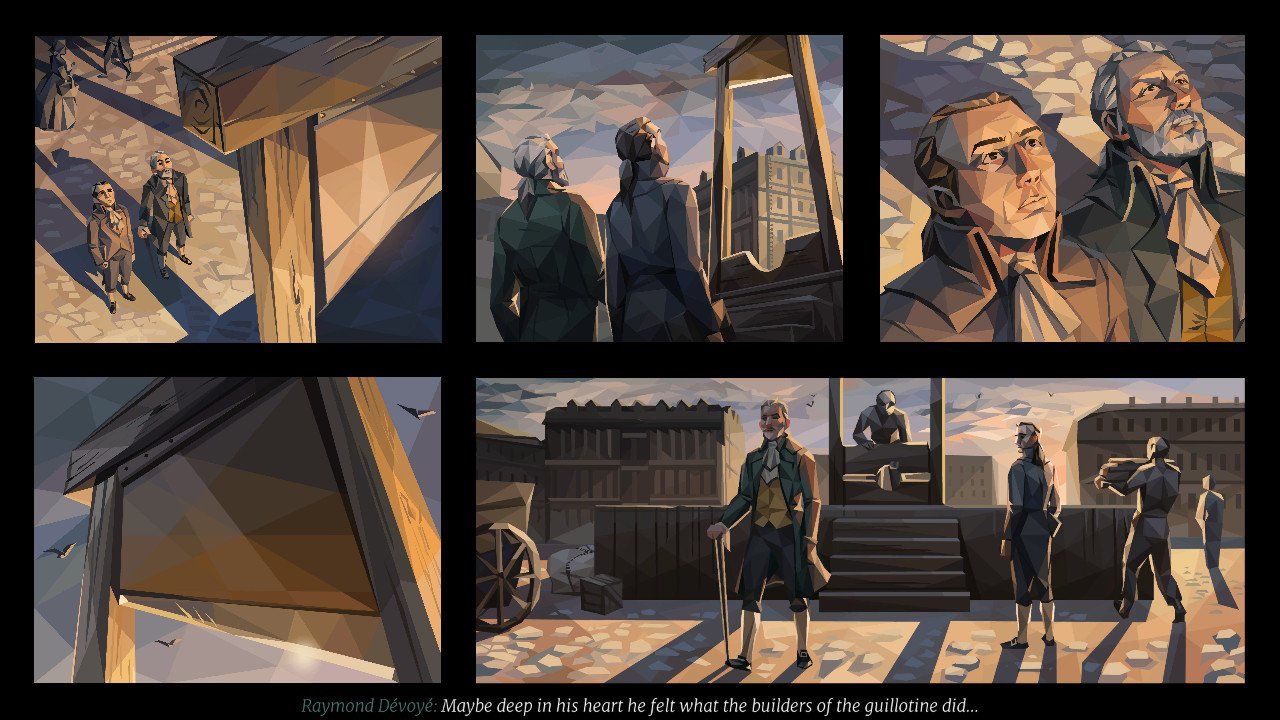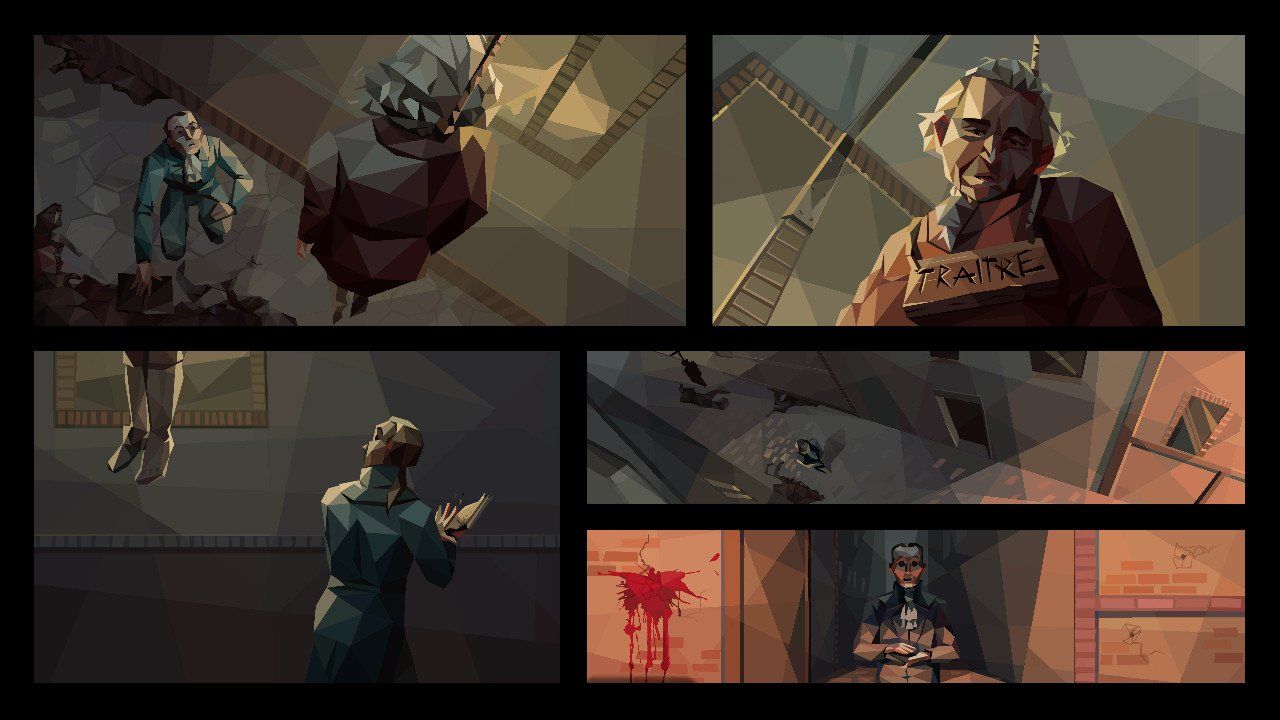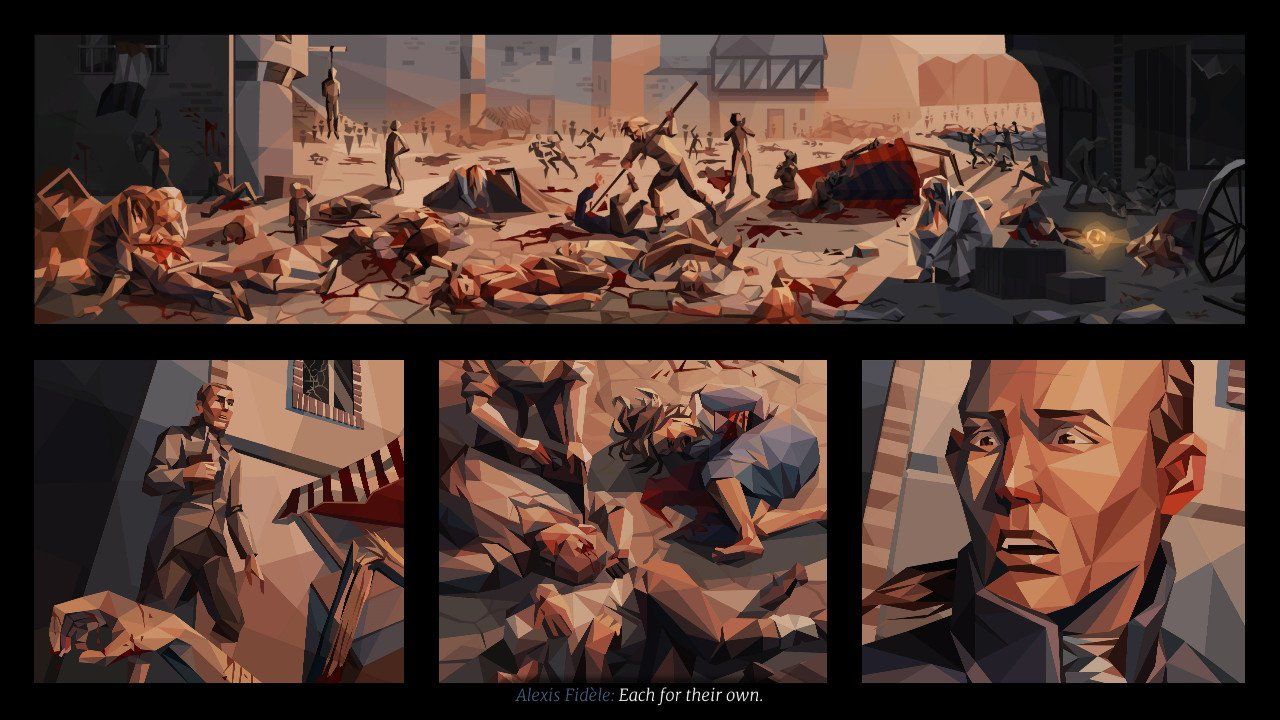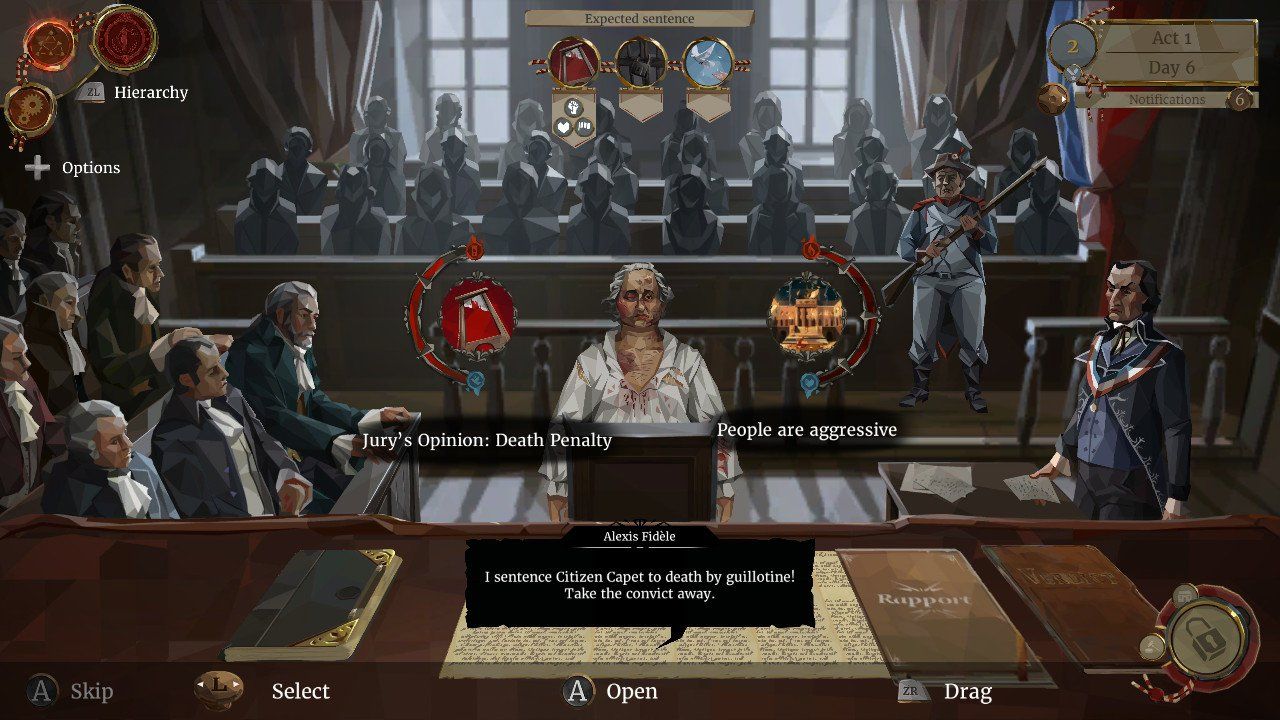Vive la révolution! Developer Polyslash released We. The Revolution on June 25th for the PlayStation 4, Xbox One, and Nintendo Switch. It had previously launched on March 21, 2019 for the PC, reaching the second position of top-selling games on Steam and having a respectable Twitch viewership.
We. The Revolution is a narrative-driven game fueled by a player's decision of key questions posed to them, with a stunning, unique art style set in the middle of the French Revolution. Players take control of a judge of the Revolutionary Tribunal, one who from the beginning of the game we come to learn is a drunken gambler. As a judge, gameplay consists of viewing a courtroom, seeing the jurors, the accused, the common folk, and occasional special visitors.
For every case presented, which is a daily occurrence, players must read through case filings, examine evidence, question witnesses and the accused, and finally make a judgment to imprison, acquit, or execute by guillotine. All choices seem to affect players' standing with factions like Revolutionaries, Counter-Revolutionaries, the Common Folk, and your family, consisting of two sons, a father, and a wife. Think carefully when making a choice. The moral high ground is not always useful when facing the knife of a faction who wants to slit your throat.
Do Choices Matter? Well yes, but actually no.
In the strictest sense, yes, choices matter because your family will directly respond to your actions, as they would in life. But the overarching events of revolution are an unstoppable machine, and you and the rest of France are caught in the cogs, moving along, some making it, others crushed.
In this way, the game occupies an interesting perspective in interpreting historical, revolutionary France. American historian, Hayden White, describes how we present history in his text Metahistory: The Historical Imagination in Nineteenth-Century Europe.
For White, writing about history and representing it through a medium falls into four types:
- Romance: drama of self-identification, including a hero's triumph over evil
- Satire: the opposite of romance, where people are captives in the world until they die
- Comedy: harmony between the natural and the social; causes for celebration
- Tragedy: a hero, through a fall or test, learns through resignation to work within the limitations of the world, and the audience learns as well
We. The Revolution is experienced as a satire. There is no hero or harmony, nor is there resignation by the main character. There is only an inevitable end to the revolution, and we do our best to survive. Sometimes we live, sometimes we die.
Perhaps that is why the game is so enjoyable from our temporal space. Knowing how bloody the French Revolution was and its result, we are aware that we as players are merely observers in the larger scheme of things.
Yes, we make choices, but their effects fall within the narrowest scope of consequence. As the game goes on, you can shift behavior to curry favor more with one faction than another, but history plays out the same in the end.
Ultimately, the flashy and massive backdrop of the French revolution is a distraction in this sense. You cannot change the outcome of history, but you can affect how your family, friends, and allies treat you. Without spoiling anything, it is fair to say that attempting to do right by people will see them repay the favor later on, and treating them badly will have a similar boomerang effect as well.
A Handheld Revolution
The transition of controls from a game that on the PC that uses a mouse to point and click to the Switch is well done. It takes only a short while before the controls feel fluid on the Switch, with the small exception in trials, when one looks to tie facts to context such as Motive, Accusation, Personality, etc., the wheel can be a bit clumsy to select a desired option. This is the tiniest of nits to pick for the control scheme.
The graphics look great on the Switch, with effective transitioning between images at the end and beginning of the day, much in the same way popular Comic book or Graphic novels apps present their media on tablets and computers. This helps create an engaging and immersive narrative structure.
Lead (Or Foresake) The People Your Way
Like most modern games, it depends on you, the player. Do you spend time pouring over the details of a criminal case to determine guilt, or are you so dangerously close to incurring the wrath of the Common Folk or the Revolutionaries that your decision is all but made for you?
There is also a certain level of replayability, in a manner of speaking. It seems that the court cases are not always the same, rather they draw from a pool to mix things up. This will have the dual effect of possibly presenting you with new cases from game to game, as well as different outcomes depending on your faction standings.
In addition, the four main members of your family react distinctly to your behavior, and it is difficult to please them all. In one playthrough, your wife may adore you, and in another, the marriage may be in shambles. How that affects the story is fascinating, and worth various plays to check out.
Criticisms Of The Port
There is one aspect of the port that has a major strike against it, one not shared with its PS4 and Xbox One counterparts. The name of the game is reading, analyzing, and making decisions within a text-based user interface (UI), and as such, both need to be clear for the game to be enjoyable. In this respect, the Switch port fails.
The text is simply too small to read comfortably when used in handheld mode. Placed into the dock and played on a television or monitor eliminates this issue completely, but that is not what the Switch is known for. Portability is a key function of the Switch, and it was how we attempted to review it. To a degree, it was fine in small bursts, but not ideal.
Conclusion
Overall, the game tells a great story, is artistically unique and inviting to the player, and there is some replayability with the choices available for family and friends. The only downside is that having played it twice now, the court cases, where we spend about two-thirds of our time or more, feel repetitive and second and third time around.
4 Out Of 5 Stars
A copy of the game was purchased by TheGamer for this review. We. The Revolution is available now for PC, PS4, Xbox One, and Nintendo Switch.

